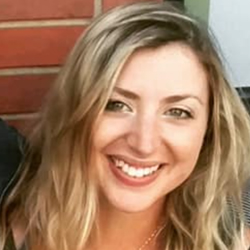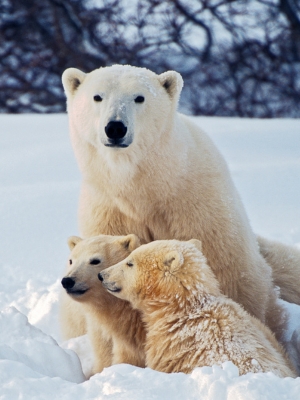As we approach Valentine’s Day, it seems that everything around us reminds us of the love we feel (or perhaps crave) in our lives. While some of us might be keen to find an unusual and thoughtful gift for our loved one this week, be wary of the exotic animal industry as it often attempts to wrap animal exploitation in a deceptively “loving” package just in time for February 14.
The Exotic Pet Trade is Perpetuated by False Promises of “Love”
The exotic pet trade exploits the idea of love to increase the demand for owning exotic animals who are unfit for captivity and often threatened with extinction in the wild. All too often, the sale of exotic animals is driven by breeders and distributors claiming that owners can provide these animals with the “loving” home they need. Through our animal rescue work, however, especially regarding monkeys rescued from the pet trade at the Born Free USA Primate Sanctuary, we know that even when love may have initially driven the desire to want a wild animal as a pet, these stories rarely end in anything but devastating heartbreak and tragedy.
Fear Often Comes to Replace Love
One of the most common regrets we hear from exotic animal owners is the realization that the love and admiration they feel for these animals are the very same feelings that allow them to eventually see the cruelty and selfishness of forcing a wild animal to live a life in captivity as a pet. Through watching a wild animal grow up within the limited confines of captivity, isolated from others of their own kind and unable to experience any natural environment or semblance of personal agency, many pet owners inevitably realize that they have effectively denied the animal their right to freedom, happiness, and health at the expense of attempting to fulfill their own.
“The love and admiration [exotic pet owners] feel for these animals are the very same feelings that allow them to eventually see the cruelty and selfishness of forcing a wild animal to live a life in captivity as a pet.”
We hear the familiar stories of exotic animal owners growing a close, loving bond with their young pet initially, but as natural instincts and the increasing progression of strength and aggression continue in the ways thousands of years of evolution intended, owners soon begin to fear their pets, and instead of providing security and tenderness as they intended, neglect and fear begin to take their place. Thus, even with the best intentions of “saving” these animals from the harmful pet trade, owners realize that they have further perpetuated an exploitative and abusive cycle that preys on animal lovers who may not fully understand the needs of wild animals or the fact that “loving” them is not enough to give them a life worth living. As a result, exotic animal owners are “loving” their pets to death.
Zoos Exploit the “Love” People Feel for Wild Animals, too
Similarly, around this time of year, when Valentine’s Day promotions are in full swing, so, too are the exploitative opportunities advertised by zoos and other wild animal menageries promising a variety of up-close interactions with wild animals to make your day celebrating love a bit “wilder” or more “thrilling.”
From pricy private VIP tours after normal zoo hours to encounter experiences with visitors’ chosen animals, zoos have demonstrated how they choose to measure their “love” for the animals in their collections in a clearly one-sided relationship, which determines value through opportunities for financial gain. For example, the Fort Worth Zoo hosts an array of Valentine’s Day themed events including “a couple’s dinner, night out with your gal pals, and even a father-daughter dance,” to help visitors “cozy up with [their] loved ones next to the giraffes and flamingos [to] celebrate Valentine’s Day this year.” The San Antonio Zoo offers a “romantic” dining experience called “Wild at Heart,” which boasts “an unforgettable date night,” where couples can experience fine dining with a backdrop of “majestic hippos, curious crocodiles, and an array of other species,” while being serenaded by live music.
“Love” Animals the Right Way
If “loving” the animals at zoos includes hosting disruptive activities during the animals’ only down time which knowingly increase their stress levels, ignoring their biological species-specific needs, and using them for human entertainment purposes with no connection to contributing to genuine conservation efforts in the wild, then it seems that zoos have demonstrated a toxic relationship with their animals, and are indeed “loving” them to death; no better than the wild animal breeders and distributors involved in the pet trade.
So, if you consider yourself an animal lover, love animals in ways that do not bind them to experiencing imprisonment, cruelty, suffering, fear, or a lifetime lived without seeing beyond the confines of their too-small cage. Love animals for what they are, who they are, and how they are destined to live: naturally, free from the constraints of human greed and exploitation. Love them by keeping them in the wild. Love them by keeping them free.
Keep Wildlife in the Wild,
Devan
Dear Reader,
We are a nonprofit committed to wildlife conservation, welfare, and rescue. Making resources free and widely distributed, like our news items, is an important part of our mission. If you found this article helpful, enjoyable, or enlightening, please donate to help keep these resources available, and Keep Wildlife In The Wild.
Thank You,
The Born Free USA Team

 Dear Reader,
Dear Reader,